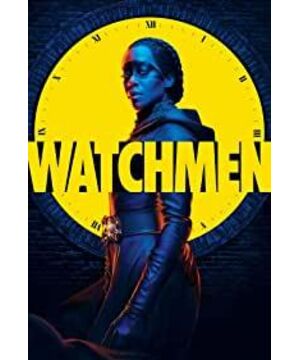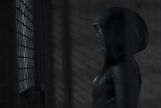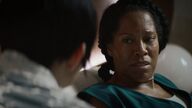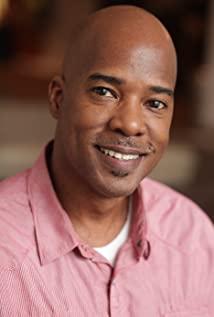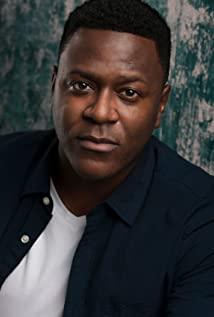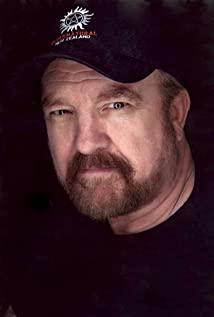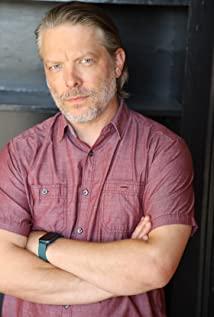That's not to say the ninth episode is the most appropriate for its plot development, its rushed, reluctant, bland, and exhaustingly heroic ending feels like it could have been better. But the truth is, in our real-world environment, the show's way of making Episode 9 the way it was really expected.
It is undeniable that the drama version of "Watchmen" is indeed a good work. It has already handed over a qualified answer sheet with its strength in the face of everyone's doubts, and some of its performances are even amazing. But everyone knows it: it can do better. Its core spirit and expressiveness are still shallow.
Even by the standards of an original drama, the villain it creates is difficult to stand up. From episode 5 onwards, the people of the Knights seem to have crossed over from a popular Hollywood action drama. They have no specific motives except for grand and evil purposes. They are mindless and love to talk nonsense. Even if they are complained, they will persevere. Gives the villain speech (the last one is especially speechless, as if watching the screenwriter's spirituality disappear from the picture).
Of course, there are space considerations for this kind of treatment, after all, they are only middle bosses. But another problem came, the real enemy Zhao's final shape was even more shallow than the Knights. Her character was very vivid in the first few episodes, and there were many foreshadowings in her plan, but she only came up with her own purpose in the last episode, and this purpose was not convincing by the previous plot. Because a lot of the content in the front is about people's confrontation with racists, the main line is based on this, and the last episode suddenly tells the audience, "This kind of problem can be solved easily, the real enemy is to become a god People!" This is really too weak. Not to mention the fact that this real boss left the stage in a hurry after only half an episode. Unbelievable villains greatly undercut the finale's performance.
The plot did not provide any clues to solve the racial problem at the core of the contradiction, as if the Knights were eliminated after the problem was solved, and the new enemy, the "Godman" itself, had almost no foreshadowing, and lacked the performance of its impact on reality (mid-term). The few performances were shown by the leaders of the knights, but obviously they still only showed the evil of racism, not the harm of God’s thought itself), but instead became the final object of discussion, but also by chicken soup gold. A quick summary. The discussion of the masked people in the plot has always been well received by the audience, but it is basically separated from the main line. Not to mention that none of the characters seem to grow or change accordingly at the end. In other words, the plot of the ninth episode actually caused all the problems presented by the show to lose their fulcrum and become empty talk.
It can be seen that the author arranged Zhao as a black hand to prevent the show from living up to the title of "Watchmen", and it was just a tangle of racial issues. The enemy who wants to show the real danger through Zhao's image is not just a racist, but also a racist. It is the selfishness, arrogance, aggression and desire for domination of human nature behind racism. Even if it is not racism, they will manifest themselves in other ways. This is not only a crisis for Americans, but it is a crisis that people all over the world have faced since ancient times. 's crisis. This is a very good topic, and it also conforms to the spirit of the original work on the basis of advancing with the times. The original work is not just to talk about the nuclear threat in the Cold War era, but to talk about the common human crisis in the world through the nuclear threat and heroes. It's a pity that the actual performance of the drama is not satisfactory, and the topics that are a little deeper are not covered at all. The classic Hollywood scenes are full of the whole episode, and everyone's performance and lines at the critical moment can be completely expected by the audience, even Zhao Wei pretends to be a model. Neither of the notices I read to purge the racists had the ironic effect they deserved. A great topic is wasted bye bye.
This is really a great regret, not only for this drama, but also for the American drama industry. The lackluster ending of "Watchmen" is just a microcosm of 2019's American drama. Although American dramas have always featured popular entertainment, in recent years there have been more and more American dramas that tend to be entertaining, plain and dazzling, while fewer and fewer works can face social contradictions, seriously discuss issues and speak in depth. Screenwriters and manufacturers seem to be more and more afraid to touch reality for what it is and to study the causes of society.
Many people attribute this to "political correctness", but in fact, in addition to this tangible creative requirement, there is another intangible factor affecting the American film and television industry: audience choice. Looking at the evaluations of film critics in North America, we know that in the case of more and more agitation in the real world, the mainstream literary aesthetic atmosphere is more and more favoring works with a relaxed attitude and peaceful singing and dancing. There are also satire, resistance and social topics in this kind of work, but most of them are slogan-style and entertaining. They are packaged in layers by Hollywood techniques, and the concept is calm. Even Chinese audiences know the routine well, and the ending is mostly "reconciliation" Or "victory of heroism". This tendency is actually the real enemy of creation. Even minorities who seem to be taken care of by "political correctness" are creatively handicapped by this whitewashing, unable to explore the plight they really face (as in this show, the masquerading of white supremacists). was established as the enemy, and the deep and complex social issues and identity crises that black people faced in American society were hidden from discussion). Those bold and sensitive works are often difficult to obtain the evaluation and attention that match their own qualities.
In this environment, what kind of excessive demands can we make of this work? The ninth episode did make sense. It's just a work in the name of reflecting the problems of the times, but in this era it can't fully reflect the problems. It is really ironic.
View more about Watchmen reviews


